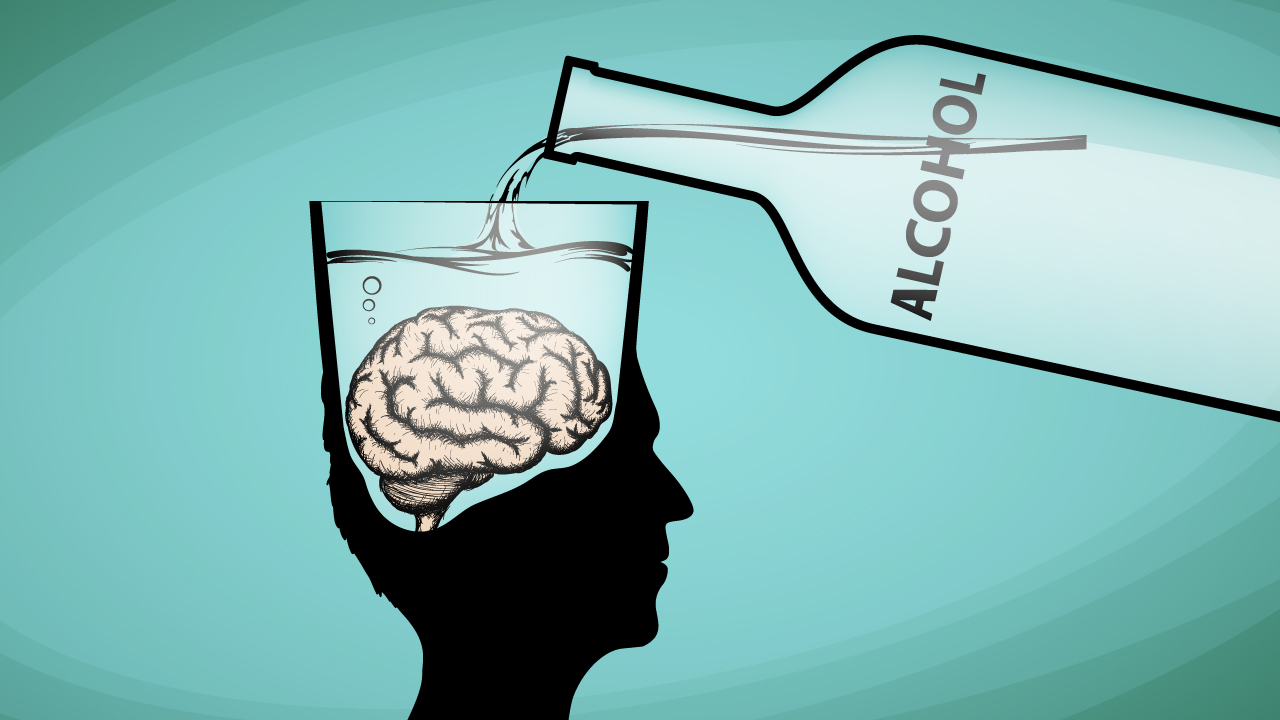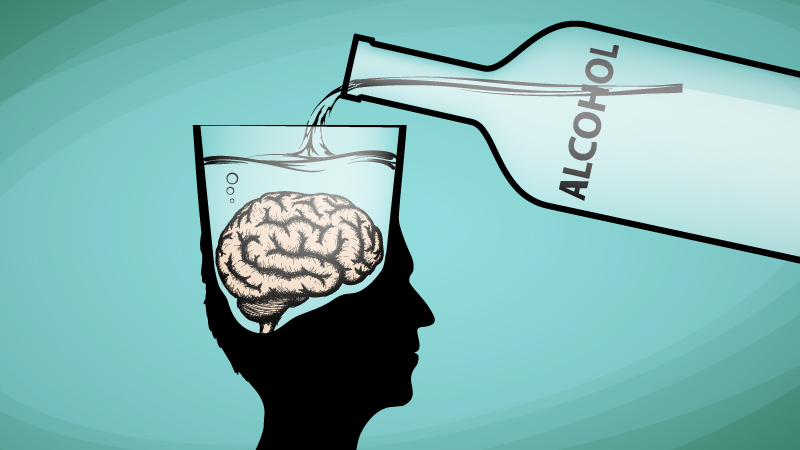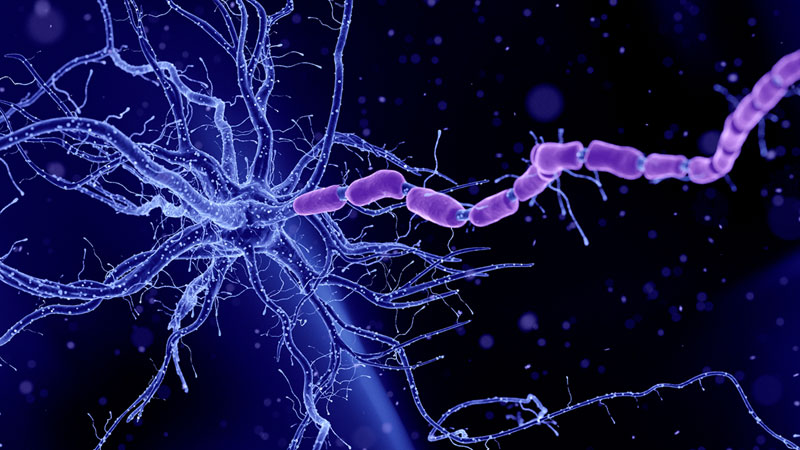How Alcohol Impacts the Brain
What Alcohol Can Do to Your Health
Updated November 2023
Do you indulge in a glass of wine every now and then? You are not alone. More than 84% of adults report drinking alcohol at some point. While having a drink from time to time is unlikely to cause health problems, moderate or heavy drinking can impact the brain. And, alcohol abuse can cause deficits over time.
Alcohol in Your Body
Alcohol affects your body quickly. It is absorbed through the lining of your stomach into your bloodstream. Once there, it spreads into tissues throughout your body. Alcohol reaches your brain in only five minutes, and starts to affect you within 10 minutes.
After 20 minutes, your liver starts processing alcohol. On average, the liver can metabolize 1 ounce of alcohol every hour. A blood alcohol level of 0.08, the legal limit for drinking, takes around five and a half hours to leave your system. Alcohol will stay in urine for up to 80 hours and in hair follicles for up to three months.
After 20 minutes, your liver starts processing alcohol. On average, the liver can metabolize 1 ounce of alcohol every hour. A blood alcohol level of 0.08, the legal limit for drinking, takes around five and a half hours to leave your system. Alcohol will stay in urine for up to 80 hours and in hair follicles for up to three months.
"Intoxication occurs when alcohol intake exceeds your body's ability to metabolize alcohol and break it down," explains Amanda Donald, MD, a specialist in addiction medicine at Northwestern Medicine.
Your Brain on Alcohol
Your whole body absorbs alcohol, but it really takes its toll on the brain. Alcohol interferes with the brain's communication pathways. It can also affect how your brain processes information.
There are several stages of alcohol intoxication:
There is no designated ‘safe’ level of drinking— Amanda N. Donald, MD
- Subliminal intoxication. With a blood alcohol content (BAC) between 0.01 and 0.05, this is the first stage of intoxication. You may not look like you have been drinking, but your reaction time, behavior and judgment may be slightly altered. Depending on weight, most people enter this stage after one drink.
- Euphoria. During the early stages of drinking, your brain releases more dopamine. This chemical is linked with pleasure. During euphoria, you may feel relaxed and confident. But, your reasoning and memory may be slightly impaired. Often referred to as "tipsy," this stage occurs when your BAC is between 0.03 and 0.12.
- Excitement. At this stage, with a BAC from 0.08 to 0.25, you are now legally intoxicated. This level of intoxication affects the occipital lobe, temporal lobe and frontal lobe in your brain. Drinking too much can cause side effects specific to each lobe's role, including blurred vision, slurred speech and hearing, and lack of control, respectively. The parietal lobe, which processes sensory information, is also affected. You may have a loss of fine motor skills and a slower reaction time. This stage is often marked by mood swings, impaired judgment, and even nausea or vomiting.
- Confusion. A BAC of 0.18 to 0.3 often looks like disorientation. Your cerebellum, which helps with coordination, is impacted. As a result, you may need help walking or standing. Blackouts, or the temporary loss of consciousness or short-term memory, are also likely to occur at this stage. This is a result of the hippocampus, the region of the brain that is responsible for making new memories, not working well. You may also have a higher pain threshold, which may increase your risk for injury.
- Stupor. If you reach a BAC of 0.25, you may have concerning signs of alcohol poisoning. At this time, all mental, physical and sensory functions are severely impaired. The risk for passing out, suffocation and injury is high.
- Coma. At a BAC of 0.35, you are at risk for going into a coma. This occurs due to compromised respiration and circulation, motor responses and reflexes. A person in this stage is at risk of death.
- Death. A BAC over 0.45 may cause death due to alcohol poisoning or failure of the brain to control the body's vital functions.
Drinking and Driving
The impaired judgment you have when drinking alcohol may cause you to think that you can still drive, regardless of your BAC. Drivers with a BAC of 0.08 or more are 11 times more likely to be killed in a single-vehicle crash than non-drinking drivers. Some states have higher penalties for people who drive with high BAC (0.15 to 0.20 or above) due to the increased risk of fatal accidents.
How Much Is Too Much?
“There is no designated ‘safe’ level of drinking,” says Dr. Donald. If you do choose to drink, your body's response to alcohol depends on many factors. These include your age, gender, overall health, body weight, how much you drink, how long you have been drinking and how often you normally drink.
- Those who drink occasionally tend to recover once they are sober. However, while their judgment is impaired, they may make poor decisions with lasting effects, such as driving under the influence.
- Those who drink moderately, one or two drinks per day, can have a higher risk for breast cancer. They may also be prone to increased violence or accidents.
- Heavy or chronic drinking occurs over an extended period of time, and it can cause lasting damage. For women* and anyone 65 years or older, this is four or more drinks per day or eight or more drinks per week. For men* under the age of 65, it is five or more drinks per day or 15 or more drinks per week.
For reference, standard drink sizes are:
- 12 ounces of beer (5% alcohol content)
- 5 ounces of wine (12% alcohol content)
- 1.5 ounces of 80-proof (40% alcohol content) distilled spirits
Alcohol Misuse and Its Lasting Effects
Over time, excessive drinking can lead to mental health problems, such as depression and anxiety. Alcohol abuse can increase your risk for some cancers as well as severe, and potentially permanent, brain damage. It can lead to Wernicke-Korsakoff syndrome (WKS), which is marked by amnesia, extreme confusion and eyesight issues. WKS is a brain disorder caused by a thiamine deficiency or lack of vitamin B-1.
Alcohol can harm your body in many ways. The good news is that within a year of stopping drinking, most cognitive damage can be reversed or improved.
If you or someone you know needs help, please contact your physician or Alcoholics Anonymous.
* Scientists do not always collect information from participants about gender identity. To avoid misrepresenting the results of this research, we use the same terminology as the study authors.






